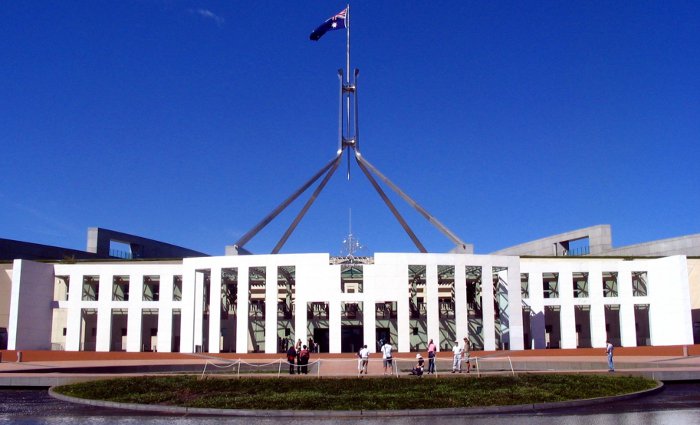
The federal government has delivered what it calls a game-changing Budget containing significant support for business including a greenlight for the immediate write-off of any eligible asset in the year the equipment is installed and a loss carry-back tax initiative.
The immediate write-off applies to operations with a turnover of up to $5 billion and is aimed squarely at encouraging plant and equipment investment before the measure expires on June 30, 2022. In all, this measure is expected to cost $26.7 billion by the time it comes to an end.
The incentive will apply to around $200 billion worth of investment, including 80 per cent of investment in depreciable assets by non-mining businesses.
The cost of improvements to existing eligible depreciable assets made during this period can also be fully deducted.
Other Budget goodies designed to rejuvenate the economy include backdating and bringing forward tax cuts for employees by two years.
Wage subsides targeted at 16 to 35-year-olds who are on JobSeeker benefits when they are employed have also been announced and are expected to put 450,000 people back into work.
So far business groups have come out in support of the Budget with The Australian Small Business and Family Enterprise Ombudsman Kate Carnell describing it as a “blockbuster” Budget and Ai Group CEO Innes Willox said it is a “Budget that is right for our times”.
The Real Media Collective has welcomed the Budget as being business-focused and of benefit to members and the industry, but is now reviewing the details around an asset cost threshold.
“The budget is one that provides solid support to businesses into the recovery phase and a complementary follow-on from the already implemented economic stimulus this year from federal government,” TRMC CEO Kellie Northwood told Sprinter.

“The dual benefits are well-regarded – for those businesses who have are in a position to invest this could see a strong opportunity for the equipment and other supply manufacturers across the country as well as businesses able to upgrade and invest in their capabilities through the access to 100 per cent write-off options.
“However we are reviewing the asset cost threshold which may require consideration from our members to ensure the full benefit is achieved without over-extending. On the other hand, businesses unable to invest, given the challenging year, can also benefit to rebuild with the loss carry back from previous years. Apprenticeships and other intern and training employment options to support their businesses future skills growth is welcomed for our industry and will see ongoing support to training programs.”
Kickstart needed
In announcing the Budget, Treasurer Josh Frydenberg said the private sector is the engine of the Australian economy and due to the ravages of COVID-19 is in need of an urgent kickstart.
“Building on the successful expansion of the Instant Asset Write Off during the COVID crisis, tonight we go further, announcing the largest set of investment incentives any Australian Government has ever provided,” Frydenberg said in his address last night.

“From tonight, over 99 per cent of businesses will be able to write off the full value of any eligible asset they purchase for their business. This will be available for small, medium and larger businesses with a turnover of up to $5 billion until June 2022.
“It is a game changer. It will unlock investment. It will dramatically expand the productive capacity of the nation and create tens of thousands of jobs.”
Carnell said this measure is “possibly the biggest win” to come from the Budget.
“Small businesses can now write-off the full value of assets purchased until 2022,” Carnell said.
“This gives small businesses time and certainty to plan to buy major equipment.
“It also significantly reduces the need for depreciation and cuts red tape.”
Willox said the new investment allowance will provide a critical boost to investment, productivity and job creation.
“Without this measure the anticipated fall in non-mining business investment of 14.5 per cent in 2020-21 would be much greater and the measure is a significant factor in the anticipated rise of 7.5 per cent in non-mining business investment in the 2021-22 year,” Willox said.
Loss carry-back
Another measure that will offer significant help for businesses that usually turn a profit but this year won’t due to the pandemic has been the introduction of a loss carry-back system.
This allows businesses, in addition to the immediate expensing, to offset prior profits made in or after the 2018-2019 financial year.
“The combination of the immediate expensing and loss carry-back measures will create an additional 50,000 jobs across the country,” Frydenberg said.
“Together with our reforms to insolvency and the provision of credit, we are giving Australian businesses their best chance to succeed and keep more people in work.”
Carnell has been pushing for this measure to help SMEs survive after the devastation of COVID-19 restrictions and shutdowns sent normally thriving businesses to their knees.
“This is a tax initiative that will result in tangible benefits for small businesses that would have otherwise been profitable if not for harsh trading restrictions and lockdowns,” Carnell said.
“It effectively allows a small business that has paid tax on profits in or after 2019 to claim back losses incurred from full year 2020 to June 2022.”
Willox also supported the carry-back initiative.

“The tax loss carry-back measure available for businesses with turnovers of less than $5 billion will provide invaluable cash flow support for many businesses suffering from the current crisis. It will allow many to stay in business, keep employing people and invest for the future. The provisions will apply in relation to losses in the current and 2021-22 financial years,” he said.
“These measures give important recognition to the dynamic role of business in powering productivity growth and the development of the domestic economy. They will add very significantly to the measures announced last week to remove barriers to business expenditure on retraining and the tax relief and simplification measures for small businesses.”
JobMaker Hiring Credit
Another key plank of the Budget is the the JobMaker Hiring Credit to encourage business to hire younger Australians, aged 16 to 35.
The JobMaker Hiring Credit will be payable for up to 12 months and immediately available to employers who hire those on JobSeeker.
It will be paid at the rate of $200 per week for those aged under 30 and $100 per week for those aged between 30 and 35.
New employees must work for at least 20 hours a week.
This initiative is estimated to help 450,000 people find work.
Skills and training
Earlier this year the federal government committed to a $2.8 billion scheme for to protect 180,000 apprentices and trainees.
The Budget has taken this further with an additional $1.2 billion set aside to create 100,000 apprenticeships and traineeships with a 50 per cent wage subsidy for the businesses who employ them.
Comment below to have your say on this story.
If you have a news story or tip-off, get in touch at editorial@sprinter.com.au.
Sign up to the Sprinter newsletter

Kellie Northwood – congratulations. For mine, your organisation, now represents
the future of “the trade”. I am now almost 92 years old, a former State President
of PIAA. They, have lost their way.
YES – the largest challenge for “the trade”, is recycling. Keep up the good work.